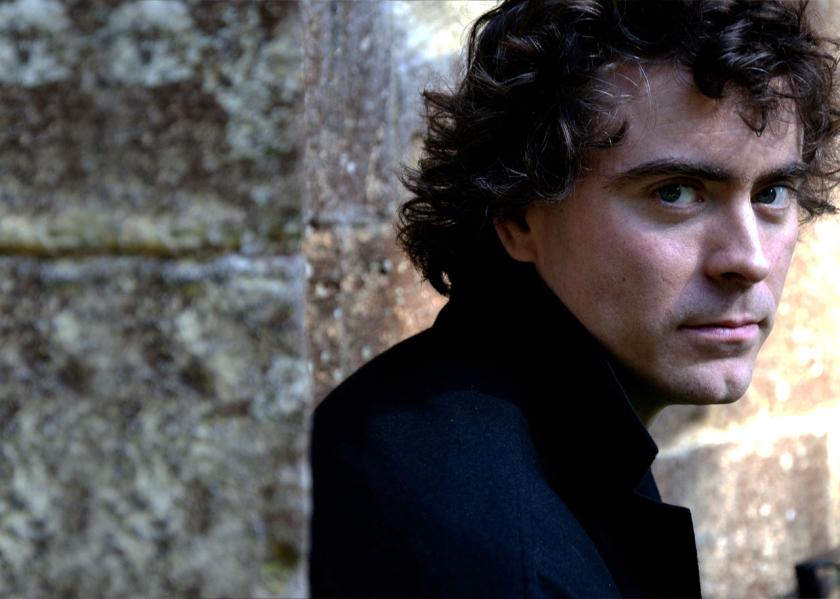There’s a particular quality to light seen from shadow. Think of the surface of the water glimpsed, hazy and haloed, as you swim upwards after a deep dive, or the smudged edges of city lights seen from a night flight. This concert by Ben Gernon and the BBC Philharmonic was an exercise in adjusted perspective. The sunny landscapes of Brahms’ Second Symphony and the smoky, slow-motion horror of 9/11 as viewed through Tansy Davies’ 9/11-inspired What Did We See? share little, but collided as they were here, each reframed the other, repositioned the listener.
Premiered by English National Opera in 2015, Between Worlds is a thoughtful but ultimately unsatisfying operatic treatment of 9/11. Davies’ music, while evocative and sometimes strikingly beautiful, just can't seem to find the narrative urgency or imperative in the events. Perhaps afraid of sensationalising, both she and librettist Nick Drake take so arms-length an approach as to barely be in the same room as their subject matter. So, in theory What Did We See? – a suite newly extracted from the opera by Davies (pictured below) – should finally allow this music to do what it wanted to all along, to mourn and meditate rather than enact.
The sense is of shreds of music torn from a larger musical fabric
To some extent it succeeds. Davies’ ear for texture is canny. Brass players breathe roughly, rhythmically into their mouthpieces – gasps for air, or the sound of a building exhaling in collapse? Either way, it’s horribly evocative, music denatured, reduced to naked sound. And then there is the glinting, metallic stillness that dominates both the first movement “Dark Dream” and the third “Dance of Air and Wire, for Earth” – stillness flickering distantly with movement in the high strings and woodwind.
And yet the suite is an odd creature. The movements don’t finish so much as simply stop, leaving ragged musical threads dangling. The sense is of shreds of music torn from a larger musical fabric – beautiful scraps, but scraps nonetheless. Fragments shored against our ruin? Perhaps, but ones so finely shredded as to be almost impossible to reassemble into any kind of meaningful whole.
 Programmed by Ben Gernon, the BBC Philharmonic’s new Principal Guest Conductor, the concert was a calling card for the young conductor, and the Brahms was a chance to show his mettle. Perhaps the most patrician, certainly the smoothest on the ear of all the BBC Orchestras, the Philharmonic’s strings and principal wind offered the softest and most pastel-smudged of blends. Here was all the lightness and grace of Brahms’ summer vision; delicately phrased arpeggios in the violins, fluttering pizzicatos from the cellos. Playing a long game, Gernon held his forces right back until the final movement, releasing them at last into ebullient movement.
Programmed by Ben Gernon, the BBC Philharmonic’s new Principal Guest Conductor, the concert was a calling card for the young conductor, and the Brahms was a chance to show his mettle. Perhaps the most patrician, certainly the smoothest on the ear of all the BBC Orchestras, the Philharmonic’s strings and principal wind offered the softest and most pastel-smudged of blends. Here was all the lightness and grace of Brahms’ summer vision; delicately phrased arpeggios in the violins, fluttering pizzicatos from the cellos. Playing a long game, Gernon held his forces right back until the final movement, releasing them at last into ebullient movement.
But something about the joy felt inevitable. Where were the shadows of the “black wings” Brahms so vividly described that curdle his first movement lullaby into a minor key? Any clouds over this lovely musical landscape felt fleeting, insubstantial – passing interludes in a day whose sunny ending is already a foregone conclusion. The orchestra played beautifully for Gernon, but there was a tidiness, a politeness here that dulled risk and quietened necessary doubts.
Invading this polite environment like a tiger at the tea table, soloist Paul Lewis brought all the missing spontaneity and transgressive energy to Beethoven’s Fifth Piano Concerto. Unapologetically big-boned, bending and stretching time, he allowed each phrase to unfold on its own terms, occasionally finding more give-and-take in the tempos than Gernon’s obedient ensemble. No smudge of sentimentality blotted the slow movement, gruff bassoons roughed up any musical edges at risk of becoming too smooth, the efficient pacing a bracing contrast to more spacious surrounding movements.
But it was Lewis’s refusal to deploy his full power and volume that was most striking in the awkward space of the Royal Albert Hall. The concerto’s moments of symphonic drama are balanced by chamber dialogues and ensembles, and it was here that Lewis really made his mark, setting us up for a roar and claw, but giving us instead the gentlest, most coaxing of purrs.














Add comment